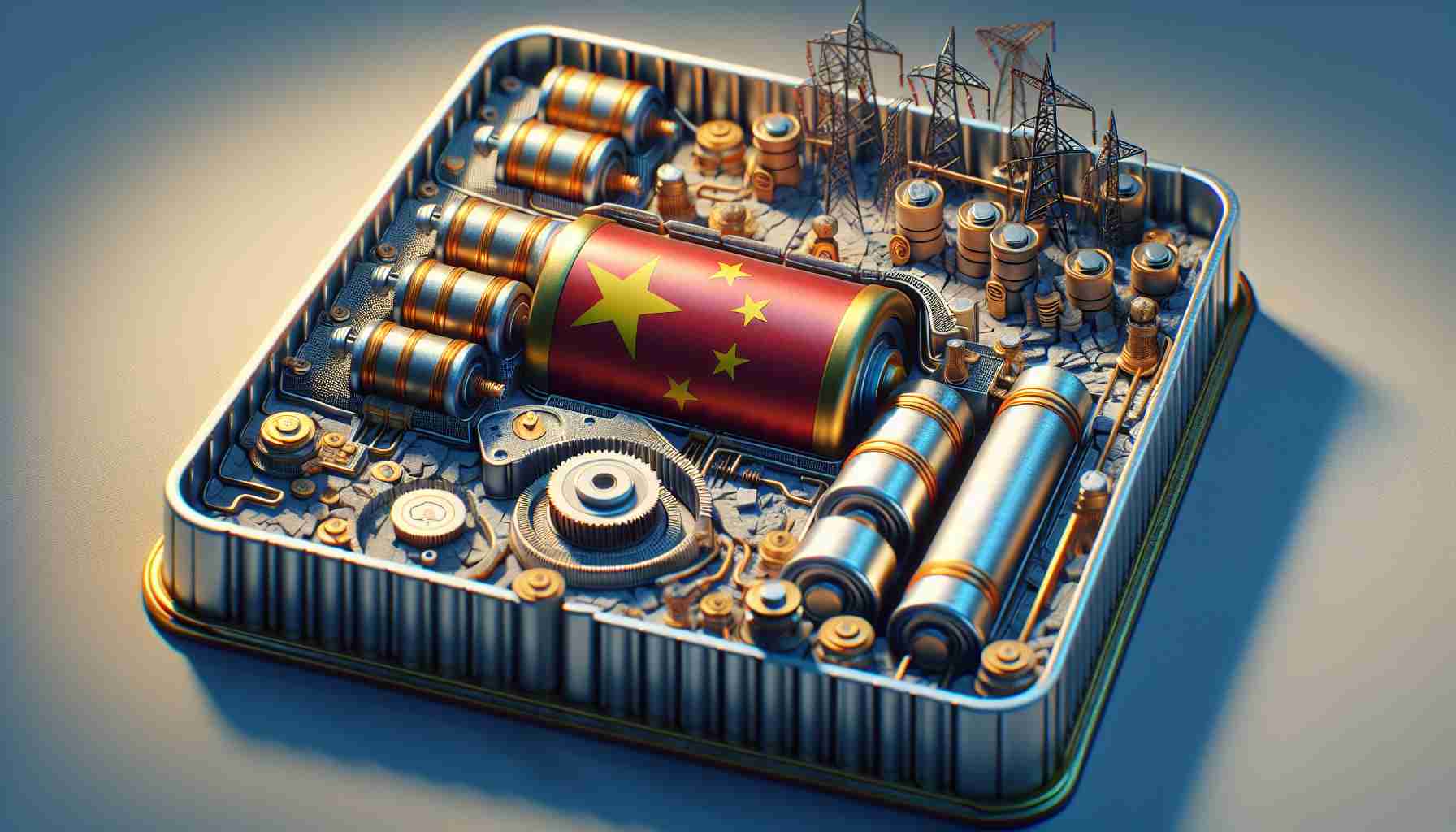Europe’s aspirations to spearhead its own electric vehicle (EV) battery industry face challenges but are not entirely deflated, even amid significant setbacks like the failure of Northvolt. The emergence of partnerships with Chinese firms, bringing crucial funds and expertise, is proving vital. InoBat, a start-up from Slovakia headed by CEO Marian Bocek, successfully secured Chinese investment from Gotion, a prominent battery producer, to elevate its trajectory. This collaboration enabled the construction of gigafactories across Europe.
Recently, InoBat announced a successful Series C funding round of 100 million euros ($104 million), bringing their total funding to over 400 million euros. This development arrives on the heels of Northvolt’s setbacks but highlights that European battery initiatives can still attract capital. Experts suggest that collaborations with established Chinese companies could become the norm as European firms capitalize on China’s established battery market presence.
Gotion illustrates its prowess with a battery capacity of approximately 150 gigawatt-hours (GWh), projected to nearly double by 2025. In contrast, Europe’s current capacity pales, emphasizing the continent’s reliance on outside assistance. Stakeholders indicate that having robust partners like Gotion on board can offer assurance to investors and automotive clients wary of start-up failures.
Beyond InoBat, other European projects progressively march forward. Still, nascent firms recognize the importance of presenting proven technological capabilities before attracting major automotive commitments. Despite this, Chinese collaboration signals hope for Europe’s battery ambitions to gain a sustainable foothold in a rapidly evolving global market.
Europe’s Evolving Electric Vehicle Battery Industry: Innovations, Partnerships, and Predictions
Europe’s ambition to establish a leading electric vehicle (EV) battery industry encounters multiple challenges but shows promising developments, particularly through strategic partnerships. Although setbacks like Northvolt highlight inherent risks, collaborative efforts with Chinese companies have injected new optimism into the European battery landscape.
Key Partnerships Fuel Growth
Slovakia’s InoBat, led by CEO Marian Bocek, exemplifies successful international collaboration. By securing investment from Gotion, a key player in the battery production arena, InoBat bolstered its efforts to build gigafactories across Europe. This partnership not only injects vital funds but also brings critical expertise to the table, enhancing Europe’s overall strategic capacity. The recent Series C funding round, raising 100 million euros, underscores the growing capacity to attract capital despite regional challenges.
Current Trends in Battery Capacity
Gotion’s battery manufacturing prowess, with a 150 gigawatt-hours (GWh) capacity, nearly outstrips current European capacities. Projections aim to double this capacity by 2025, further emphasizing Europe’s reliance on external expertise to elevate its market presence. The emphasis on these partnerships reflects a broader trend where stakeholder confidence hinges on collaboration with established global leaders.
Strategic Insights: Collaboration as a Norm
Experts predict that strategic collaborations with Chinese companies will become increasingly standard for European entities. Such partnerships provide credibility, attract investors, and help navigate technological and economic landscapes. The broader implication is a more sustainable approach towards bolstering Europe’s battery market presence, which is crucial amidst global competition.
Innovations and Future Projections
Several emerging European initiatives signal continued progress. However, these endeavors underline the necessity for proven technological capabilities to secure significant automotive commitments. The influx of Chinese collaboration opens pathways for European entities to establish long-term viability within the evolving global market.
Sustainability and technological innovation remain focal points for Europe’s battery industry strategies. As the region strengthens its foothold through international partnerships, the capacity for impactful and sustainable growth becomes increasingly tangible. Such developments offer hope for Europe’s ambitions in a competitive and fast-paced sector.
By maintaining these strategic partnerships and focusing on innovation, Europe can nurture its role in the burgeoning EV battery industry. This approach not only promises economic benefits but also aligns with the continent’s sustainability goals, paving the way for a robust, competitive presence in the international market.
















